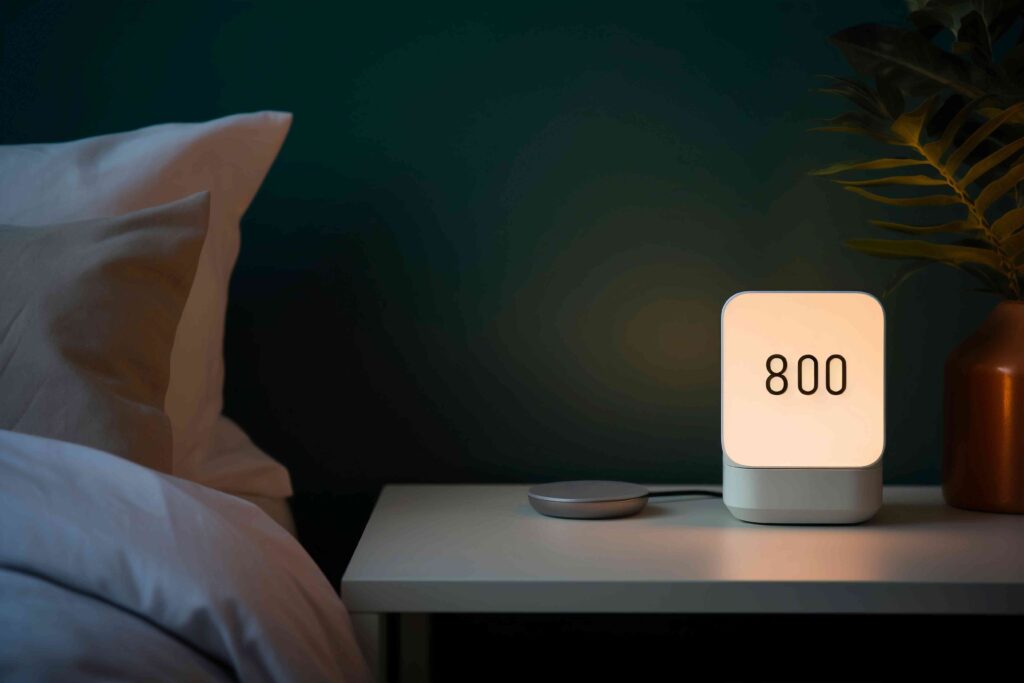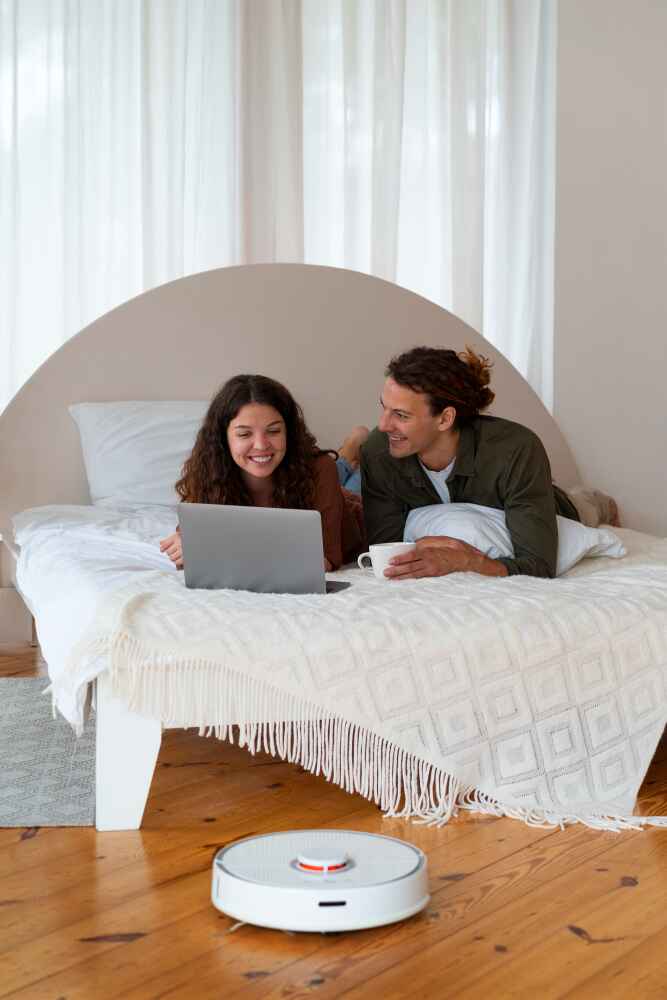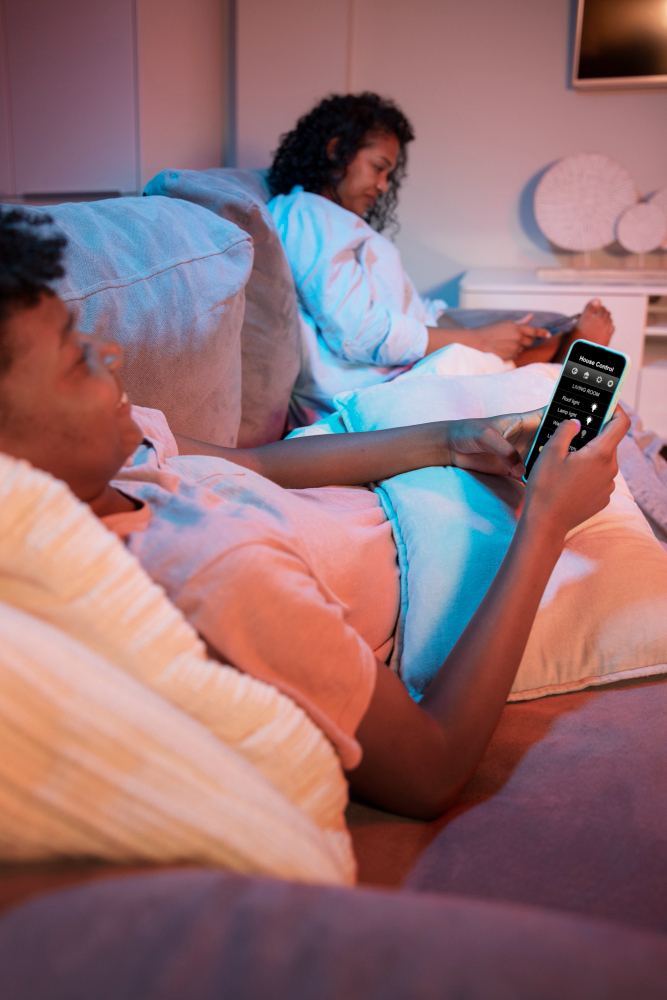Can Smart Homes Help You Sleep Better? The Answer May Surprise You

Introduction: A New Way to Think About Sleep
Once upon a time, falling asleep was simple. The sun went down, the world grew quiet, and our bodies naturally drifted into rest. Fast forward to today, and sleep feels like a luxury. Our minds race with to-do lists, our phones glow late into the night, and even the sounds of traffic or a sudden power cut can keep us tossing and turning. No wonder so many adults struggle to get those golden 7–8 hours of rest.
But here’s the twist, what if modern technology could bring back the ease of natural sleep? That’s exactly what a smart home system is designed to do. Think of it as a silent helper that sets the stage for your perfect night’s rest: lights that fade like a sunset, curtains that close at just the right moment, and cool, crisp air that lulls you into deep sleep.
In Kerala, where monsoons roar, summers get sticky, and city life rarely pauses, home automation in Kerala can transform your bedroom into a sanctuary. It’s not about gadgets, it’s about recreating harmony, where your home works for you while you simply rest.
Let’s discover how the smart home
The Link Between Sleep and Environment
Sleep doesn’t just depend on how tired you are, it’s strongly influenced by your surroundings. Lighting, temperature, sound, and air quality all affect how quickly you drift into slumber and whether you experience deep, restorative sleep.
In a traditional home, you manually adjust fans, lights, curtains, and air conditioners. But even with effort, it’s hard to get the balance right consistently. For example:
You may forget to dim the lights before bed.
Kerala’s sudden temperature shifts (cool rains vs humid nights) may keep your room uncomfortable.
Street lights or vehicle noise might disturb your sleep cycle.
A smart home system eliminates these problems by syncing your environment with your body’s natural rhythms. It anticipates your needs and adapts automatically, helping you get the kind of sleep your body craves.
How Smart Homes Improve Sleep
- Smart Lighting That Follows Your Body Clock
Light is the strongest signal for your circadian rhythm, the internal clock that tells your body when to sleep and when to wake up. Unfortunately, we often expose ourselves to bright screens late at night and harsh lights that confuse this rhythm.
With a smart home, lighting becomes more intelligent:
Bedtime mode: Lights gradually dim as bedtime approaches, signaling your brain to wind down.
Wake-up mode: Instead of a blaring alarm, lights brighten slowly, mimicking a natural sunrise.
Daylight syncing: During the day, lights adjust to match natural daylight, keeping your routine consistent.
In Kerala, where cloudy monsoons and long sunny days can alter natural light exposure, smart lighting keeps your rhythm steady year-round. Imagine waking up gently at 6 a.m. with a warm glow in your room, even on a rainy morning.
- Smart Temperature Control for Deeper Sleep
Temperature is another major factor in sleep quality. Too hot and you’ll toss around in sweat; too cold and you’ll keep waking up to adjust the fan or blanket.
A smart thermostat or connected AC can:
Maintain the ideal sleep temperature (18–22°C).
Automatically cool your room during humid Kerala nights.
Warm your space during the occasional chilly monsoon evenings.
Save energy by adjusting settings once you’re asleep.
For Kerala homes, this is especially beneficial. Humidity often spikes at night, and air conditioning without smart control may either overcool or leave the room stuffy. Smart climate control ensures balance without waste.
- Smart Curtains and Shades
Curtains may seem simple, but they play a big role in sleep. Streetlights, vehicle headlights, or early morning sunshine can easily disturb your rest.
A smart home system allows you to:
Schedule curtains to close automatically at sunset.
Block out external light at night for deep sleep.
Open them gently in the morning for natural wake-ups.
For Kerala homes, automated curtains also protect against humidity and rain while letting in just the right amount of light during the day.
- Noise Control for a Peaceful Night
Noise pollution is one of the most underrated sleep disruptors. Whether it’s traffic, neighbors, or Kerala’s heavy monsoon rains pounding on rooftops, unwanted noise keeps the brain alert even during sleep.
Smart homes combat this with:
Sound sensors that detect and mask sudden noises.
White noise integration for a soothing environment.
Smart windows and noise-canceling features to block outdoor disturbances.
Imagine enjoying the sound of gentle rain while your smart system filters out harsh thunder or traffic sounds, just enough to relax without waking you up.
- Air Quality Monitoring
Breathing clean, balanced air is essential for uninterrupted sleep. Poor air circulation, allergens, and high humidity can lead to restless nights or even trigger conditions like asthma and sinus issues.
Smart air purifiers and humidity controllers in a smart home system provide:
Consistent air circulation.
Healthy humidity levels, very useful in Kerala’s tropical climate.
Allergen reduction for sensitive sleepers.
When your body gets fresh oxygen and the right humidity levels, sleep becomes deeper and more restorative.

Real-Life Benefits: Why Kerala Homes Need Smart Sleep Solutions
Kerala offers a unique lifestyle: a blend of tradition, tropical weather, and modern aspirations. But it also comes with challenges:
- Summers are hot and humid, making sleep uncomfortable.
- Monsoons bring cool breezes but also heavy rain and high moisture.
- Urban life brings traffic, light pollution, and irregular schedules.
By adopting home automation in Kerala, you can:
- Sleep comfortably without adjusting AC or fans all night.
- Reduce electricity bills by automating energy-efficient systems.
- Improve overall health by syncing sleep cycles with natural rhythms.
- Give every family member, children, working professionals, or elders, a personalized sleep environment.
In short, smart homes in Kerala are not just about luxury, they’re about wellness and balance.
Smart Home Features That Support Healthy Sleep
A good night’s rest comes from combining multiple smart features:
Voice Control: Control lights, fans, AC, and curtains without moving from bed.
Sleep Tracking: Smart beds or wearables connect to the system and adjust settings automatically.
Scheduling: Set bedtime routines for kids, teens, or even shift workers.
Energy Efficiency: Rest easy knowing your devices use minimal power while you sleep.
Common Myths About Smart Homes and Sleep
Myth 1: Smart Homes Are Just Luxury Toys
Truth: Today’s smart home systems are designed with health and wellness in mind. Sleep improvement is one of their strongest benefits.
Myth 2: Too Expensive for Regular Homes
Truth: With the rise of home automation in Kerala, affordable starter kits are widely available. You don’t need to automate everything at once, start with lighting or curtains.
Myth 3: Too Complicated to Operate
Truth: Smart homes are user-friendly. Most devices can be controlled via a simple smartphone app or even voice assistants like Alexa or Google Home.
Practical Tips: Building a Sleep-Friendly Smart Home in Kerala
- Start Small, Dream Big: Begin with smart bulbs or a smart plug before investing in a full system.
- Focus on Comfort First: Prioritize features like lighting, temperature, and curtains, which impact sleep the most.
- Go Local: Partner with providers of home automation in Kerala who understand regional needs.
- Expand Gradually: Add advanced features like air purifiers, smart beds, and sleep tracking as your budget allows.

Final Thoughts: Sleep Smarter, Not Harder
Sleep is no longer just about shutting your eyes, it’s about creating the right environment for your body and mind to recharge. A smart home is your silent partner in achieving this. From dimming lights to adjusting temperature and keeping noise at bay, a smart home system gives you a personalized approach to restful nights.
For Kerala households, home automation in Kerala offers not only modern convenience but also health and wellness benefits. It’s the perfect blend of technology and lifestyle, helping you wake up refreshed, energetic, and ready to take on each day.
So the next time you struggle to fall asleep, remember, it may not be your body that’s the problem, but your environment. And that’s something your smart home can fix.
